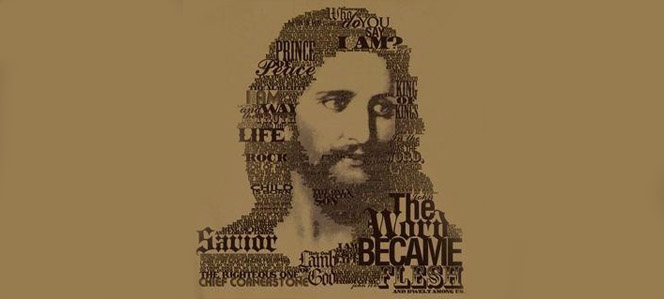 God Joins Our Dysfunctional Family
God Joins Our Dysfunctional FamilyBy Rev. Robert Barron
The Gospel reading for the Mass of Christmas day is taken from the prologue of John’s Gospel, and it includes what is probably the best-known line of the New Testament: “and the Word became flesh and dwelt among us.” God’s Word became flesh, entering into the temporality, finitude, muck and mud of our human condition. This incarnation of God is the hinge on which the whole of Christianity turns. To get a further feel for the texture of it, I would suggest that we turn from the prologue of John to the prologue of Matthew. The opening lines of Matthew’s Gospel—and hence the first words that one reads in the New Testament—are a listing of the geneology of Jesus, the 42 generations that stretch from Abraham to Christ. If the Word truly became flesh, then God had, not only a mother, but also a grandmother, cousins, great-aunts, and weird uncles. If the Word truly dwelt among us, then he was part of a family that, like most, was fairly dysfunctional, a mix of the good and bad, the saintly and the sinful, the glorious and the not so glorious. And this is such good news for us.
Let me highlight just a few figures from Jesus’ family tree. Matthew tells us that the Messiah was descended from Jacob, a great patriarch and hero of Israel, and also a man who wrestled with God. In a lyrical passage from the 32nd chapter of the book of Genesis, we hear that Jacob struggled all night with the Lord and was wounded permanently in the process. I imagine that there are some reading these words who have wrestled all their lives with God, questioning, doubting, wondering, struggling mightily with the Lord, perhaps even bearing spiritual wounds as a consequence. Well, the Messiah came forth from Jacob and was pleased to be a relative of this fighter. Matthew’s genealogy informs us that Ruth was an ancestor of the Lord. Ruth was not an Israelite, but rather a Moabite, a foreigner. She married into an Israelite family, and even after her husband died, she remained loyal to her mother-in-law, returning with her to the town of Bethlehem, where she eventually married Boaz and became the mother of Jesse, who in turn became the father of King David. I would be willing to bet that there are some reading these words who have felt all their lives like outsiders, not part of the “in” crowd, perhaps looked at askance by others. Well, the Messiah came forth from Ruth the foreigner and was pleased to be her relative.
And we should say a word about Ruth’s famous grandson, who is mentioned prominently in the genealogy. David was, it could be argued, the greatest figure in the Old Testament. He was the slayer of Goliath, the king who united Israel and formed her into a great power, a man of intense prayer and piety, the composer of psalms, and an incomparable warrior. But he was also a murderer and an adulterer. Re-read that devastating account of David’s seduction of Bathsheba from the second book of Samuel to get the details. I’m sure that there are some reading these words who feel a bit like David. Perhaps you’re a person of great success, power, and influence…who harbors a secret sin. Perhaps you’ve abused your power in order to freeze out someone who was threatening you or to demean someone whom you envied. Maybe you’ve done worse. Well, the Messiah came forth from David and was pleased to be a relative of that deeply ambiguous character.
If preserving Jesus’ respectability was Matthew’s goal, he would certainly have found a way to eliminate the name of Rahab from the geneology. As you recall from the book of Joshua, Rahab was a prostitue living and working in Jericho at the time of the Israelite conquest of the promised land. When Joshua sent spies into the city, Rahab hid and protected them. As a consequence, when the entire city was destroyed and the people put to the sword, Rahab and her family were spared. Are there people reading these words who feel like Rahab? Who think that their whole lives have been sunk in sin, who have become unrecognizable to themselves? Well, the Messiah came forth from Rahab the prostitute, and he was pleased to be her relative. And Matthew mentions Abiud, Zadok, and Azor as ancestors of Jesus. Who were they? No one really knows. Their identities and accomplishments are lost in the mists of history. I’d be willing to bet that there are some reading this article who feel like those forgotten figures: unsung, unaccomplished, unknown. Well, the Messiah was pleased to become a member of those nobodies Abiud, Zadok, and Azor.
The good news of Christmas is that God himself pushed into the dysfunctional and ambiguous family of man. And he continues to join us, even though we, like so many of his Israelite ancestors, are unworthy of him. Like them, we are flawed, compromised, half-finished. But he becomes our brother anyway. That’s the amazing grace of the Incarnation.
